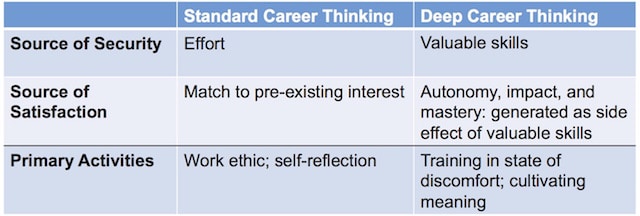
I’ve spent years studying how knowledge work operates. One thing I’ve noticed about this sector is that it tends to treat the assignment of work tasks with great informality. New obligations arise haphazardly, perhaps in the form of a hastily-composed email or impromptu request during a meeting. If you ask a manager to estimate the current load on each of their team members, they’d likely struggle. If you ask the average knowledge worker to enumerate every obligation currently on their own plate, they’d also likely struggle — the things they need to do exist as a loose assemblage of meeting invites and unread emails.
What prevents this system from spiraling out of control is often a series of implicit friction sources centered on physical co-location in an office. For example:
- If I see you in the office acting out the role of someone who is busy, or flustered, or overwhelmed, I’m less likely to put more demands on you.
- If I encounter you face-to-face on a regular basis, then the social capital at stake when I later ask you to do something via email is amplified.
- Conference room meetings — though rightly vilified when they become incessant — also provide opportunities for highly efficient in-person encounters in which otherwise ambiguous decisions or tasks can be hashed out on the spot.





